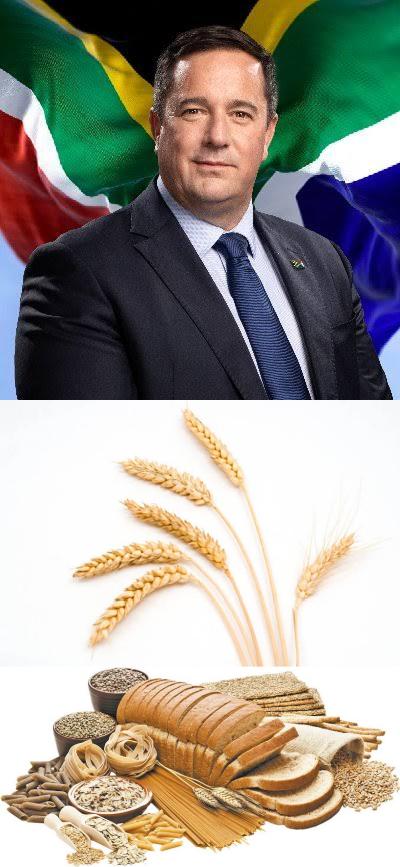The Minister of Agriculture in the GNU-led government, John Steenhuisen, has taken steps to prevent increases in grain and bread prices. According to Retailer Pick n Pay, the Department of Agriculture’s decision to eliminate external grain inspectors will protect South African consumers from soaring prices for bread and grain products. The retail chain, along with other significant stakeholders in the grain sector, praised the department’s decision to dismiss Leaf Services from its role.
Leaf Services had been responsible for inspecting grain and grain products in South Africa since 2006. However, the company’s methods and pricing practices faced considerable criticism, leading to legal challenges from groups including the Consumer Goods Council of SA, Grain SA, and the Chamber of Baking.
Since 2016, Grain SA has actively contested Leaf Services’ control over the grain grading system, arguing that their fees imposed undue financial burdens on producers without adequate consultation or justification. They filed formal objections, sought legal counsel, and directly appealed to the Ministry in 2024 to terminate Leaf’s appointment.
Last week, the department officially revoked Leaf Services’ designation as the grain inspector, with Minister Steenhuisen citing numerous concerns raised by industry participants. The department noted that Leaf’s fees could have added tens of millions of rands to the costs of grain and oilseeds.
Grain SA indicated that its members could have faced over R600 million in fees had Leaf implemented the proposed R4-per-ton charge in 2016. Pick n Pay’s CEO, Summers, remarked that without the minister’s intervention, the retailer would have incurred approximately R10 million annually, not including extra costs related to specialty breads.
With Boxer, the estimated costs would have been around R15 million for a service that was previously free, according to Summers. He stated, “This would have undoubtedly increased the prices of essential goods.” He emphasized that basic bread operates on low or zero margins, as it is a staple for many South Africans, particularly those facing significant financial difficulties.
Summers criticized the situation as entirely unnecessary. He noted that no research was conducted to assess compliance levels within the baking industry to determine if inspections were actually needed. He explained that bread quality is managed by producers, millers, and retailers, and the department had previously offered a complimentary service to ensure quality control.
The proposed inspections were not focused on food safety; rather, they would have examined composition, which Summers deemed unnecessary. He highlighted that for Pick n Pay alone, the inspection approach suggested by Leaf Services, which included three inspections per year at each of the 920 stores nationwide, raised serious concerns.
The sampling process would have required duplicate samples from each batch and size of bread collected at the point of sale. Given that Pick n Pay’s batch codes are based on daily production, this method would have significantly complicated operations and increased costs—a situation that would have applied to all retailers.”
 8We are certainly relieved that the minister heeded the concerns of many and made the right decision. This would have been an outrageous expenditure with no real benefit,” Summers concluded.
8We are certainly relieved that the minister heeded the concerns of many and made the right decision. This would have been an outrageous expenditure with no real benefit,” Summers concluded.


